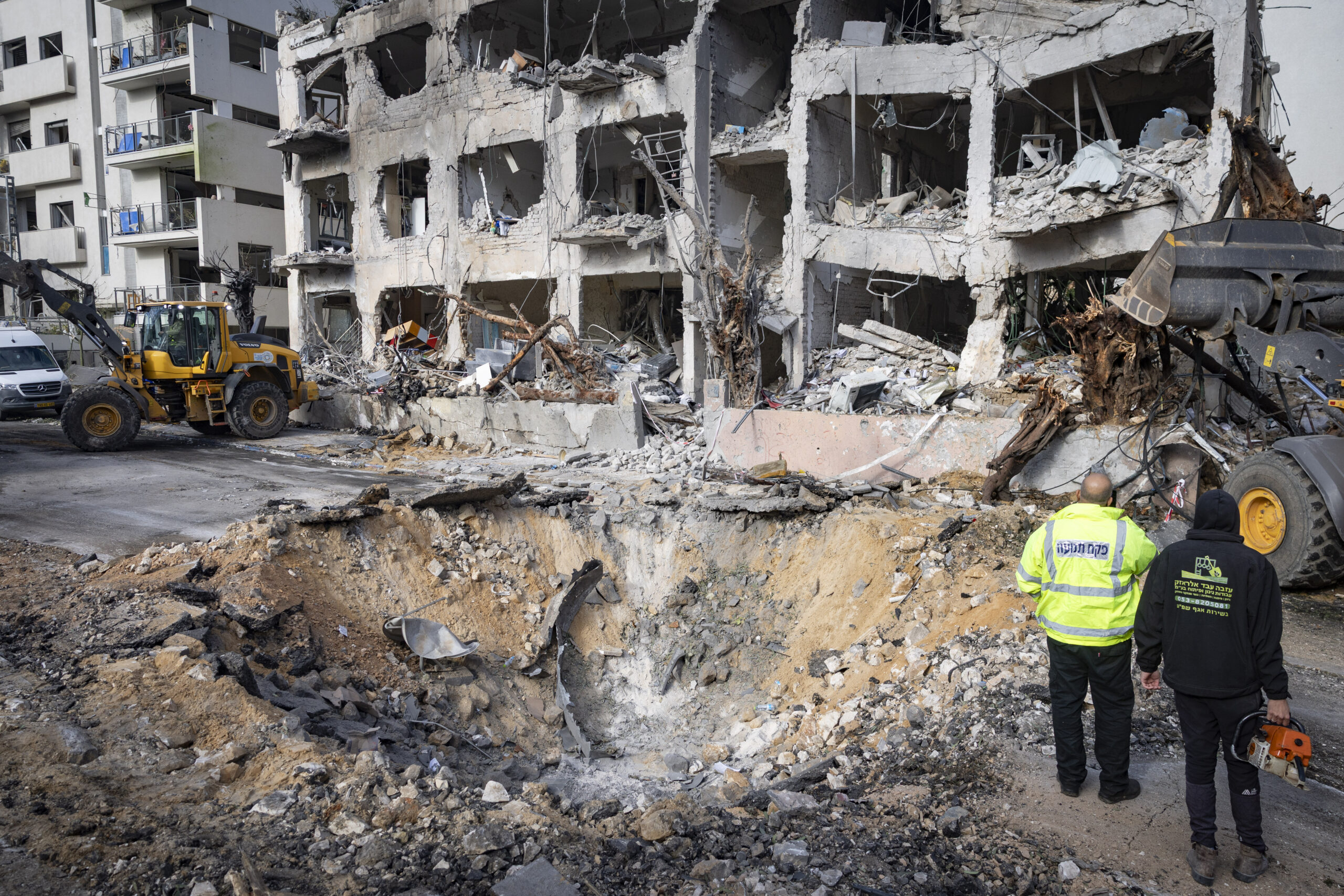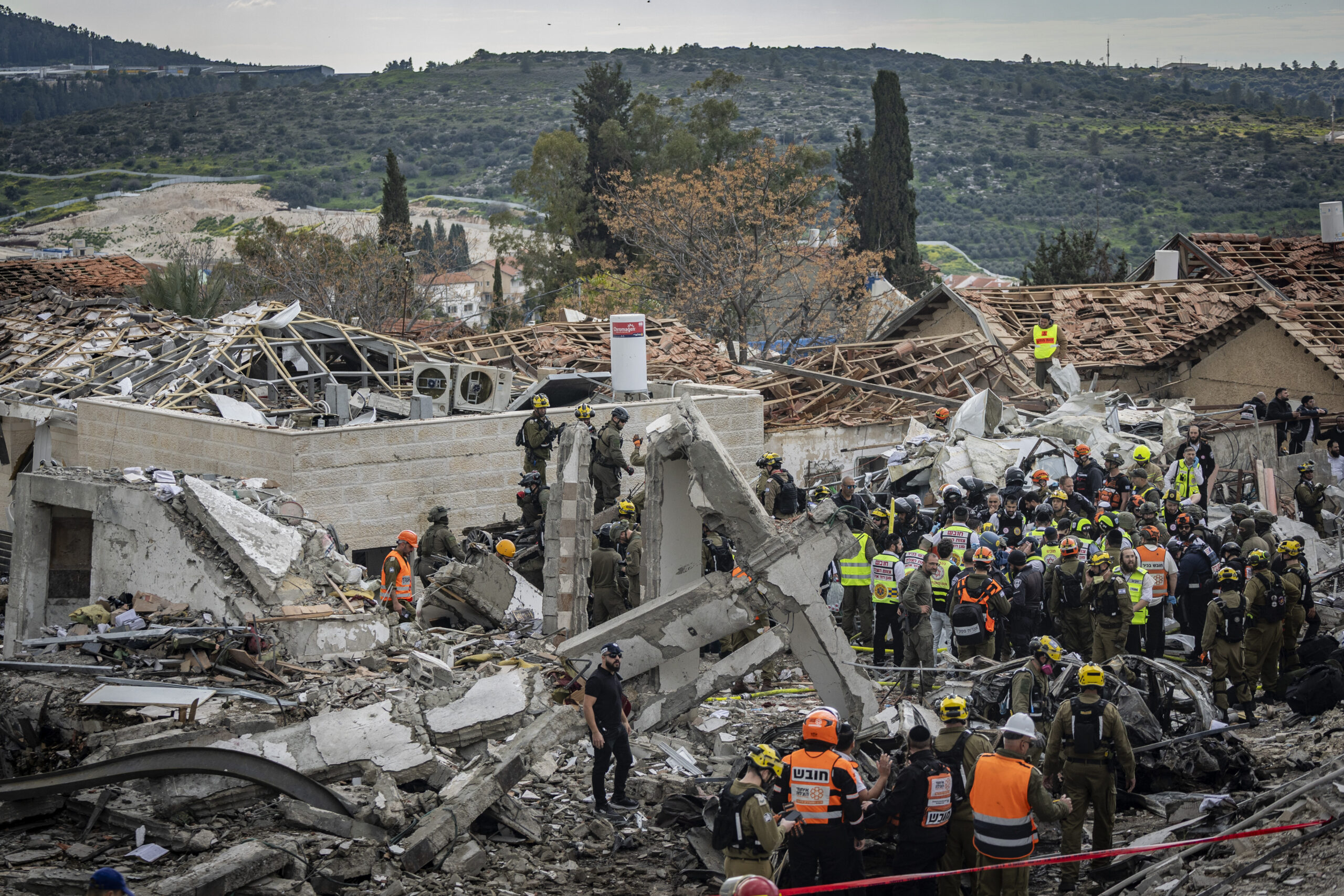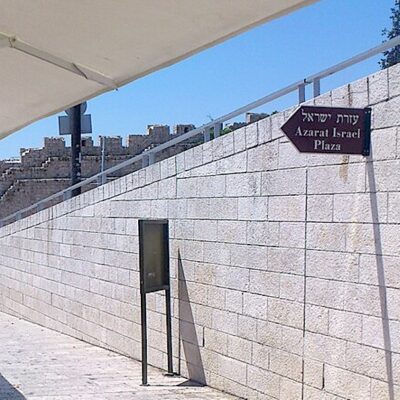‘Just a humane thing to do’: Israeli tech relief nonprofit SmartAid providing assistance to displaced Lebanese
SmartAid, the Israeli humanitarian tech relief nonprofit, will begin delivering aid kits to Lebanese civilians displaced by the fighting between Israel and the Hezbollah terror group, through a local Lebanese charity this week, in a rare case of an Israeli organization operating within the country, which does not have official ties with Jerusalem, the organization’s founder told eJewishPhilanthropy on Monday.
With an initial donation of $70,000 received from private Jewish donors, as well as one organization — all of whom asked to remain anonymous — SmartAid will provide 200 kits containing basic hygiene items, such as toothbrushes, soap, rehydration salts and solar lights, to some 6,000 people, said the organization’s founding director, Shachar Zahavi.
According to the International Organization for Migration, as of Sept. 30, there were 346,209 internally displaced people in Lebanon who had fled their homes in light of the ongoing fighting between Hezbollah and the Israel Defense Forces, which launched a limited ground invasion of southern Lebanon earlier this month and has also conducted airstrikes on Hezbollah strongholds in Beirut and in the Bekaa Valley.
Zahavi said his organization was approached recently for the assistance by a local Lebanese charity, which also asked to remain anonymous for safety reasons, that SmartAid had assisted following the 2020 Beirut Port explosion of a warehouse storing ammonium nitrate fertilizer that left 218 people dead and thousands injured.
“We looked into this a hundred times because we don’t want to get into a situation where…by mistake [the aid] goes to the wrong hands. We’re working with this organization because we trust this organization,” said Zahavi. “[In] Israel…we see the leadership — depending on which country — as the enemy, not the people themselves who are affected.”
While the local logistics for delivery are in place, details for the cargo flight from a Western country to Beirut still needs to be coordinated, he said, as does the final geographical destination of the aid as the local charity works in numerous locations.
He noted that starting in January SmartAid has similarly worked in Gaza providing thousands of tents to civilians in partnership with an American relief group. In the next few weeks SmartAid will also be bringing in a full container of similar hygiene aid kits into Gaza through the Ashdod port, he said.
Unlike with Lebanon, there has been an established channel for aid distribution into Gaza through Israel even before Oct. 7, he added.
“With Gaza you are following all the directives which are needed by the Israeli government. In Lebanon there isn’t a channel that has been working for years so it’s a little bit different,” he said.
Both sides suffer from war, he said, and SmartAid is also providing aid in Israel.
“We work in areas [hit by] catastrophes, in areas affected by natural and war-related disasters, all across Africa, in Asia. We’re still in Ukraine, we’re still in Moldova. We work where disaster hits, whether it’s war-torn Sudan or the Middle East,” Zahavi said. “You can’t blame people for what their government or leadership is doing. I think it is just a humane thing to do.”
Smart Aid integrates assistance with technology and innovation in ways and places that can help people and other charities expand what they do, Zahavi said, and all aid delivered by SmartAid is distributed with its logo so a quick look on social media easily reveals that it’s an Israeli organization.
“There is no hiding it,” said Zahavi. “But the idea behind what we’re doing is to provide aid. Specifically, that we are a global humanitarian group that provides aid to whoever needs it in times of distress. It’s a growing circle of people that want to do good, have the capacity and have the knowledge to provide proper support. If we’re based in Israel, that’s a bonus, but our focus is helping people.”
Ed. note: An initial version of this story incorrectly stated that 200 aid kits were being provided by another organization. In fact, the other organization contributed to the purchasing of the 200 kits by SmartAid.

 Add EJP on Google
Add EJP on Google















